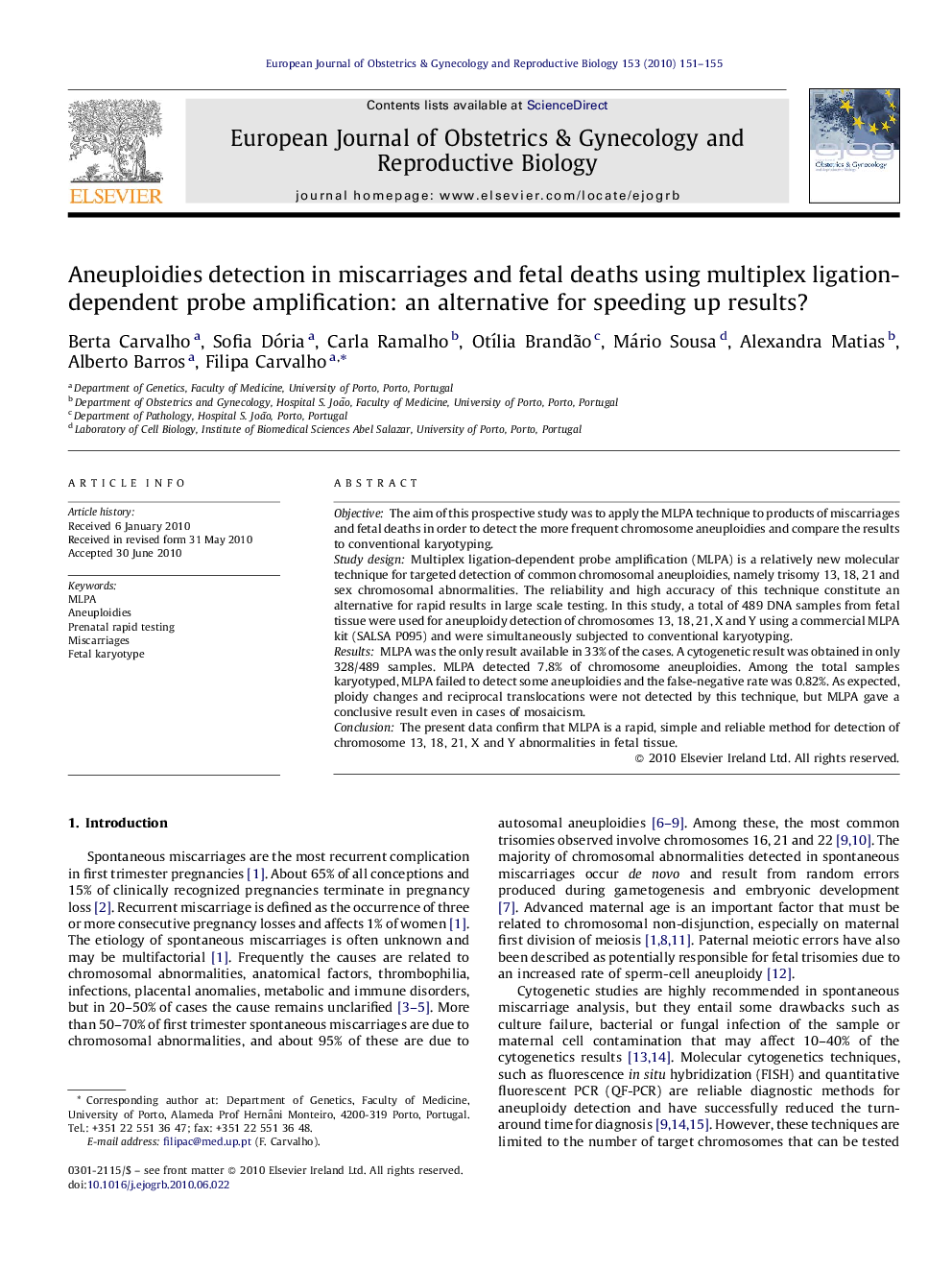| Article ID | Journal | Published Year | Pages | File Type |
|---|---|---|---|---|
| 3920635 | European Journal of Obstetrics & Gynecology and Reproductive Biology | 2010 | 5 Pages |
ObjectiveThe aim of this prospective study was to apply the MLPA technique to products of miscarriages and fetal deaths in order to detect the more frequent chromosome aneuploidies and compare the results to conventional karyotyping.Study designMultiplex ligation-dependent probe amplification (MLPA) is a relatively new molecular technique for targeted detection of common chromosomal aneuploidies, namely trisomy 13, 18, 21 and sex chromosomal abnormalities. The reliability and high accuracy of this technique constitute an alternative for rapid results in large scale testing. In this study, a total of 489 DNA samples from fetal tissue were used for aneuploidy detection of chromosomes 13, 18, 21, X and Y using a commercial MLPA kit (SALSA P095) and were simultaneously subjected to conventional karyotyping.ResultsMLPA was the only result available in 33% of the cases. A cytogenetic result was obtained in only 328/489 samples. MLPA detected 7.8% of chromosome aneuploidies. Among the total samples karyotyped, MLPA failed to detect some aneuploidies and the false-negative rate was 0.82%. As expected, ploidy changes and reciprocal translocations were not detected by this technique, but MLPA gave a conclusive result even in cases of mosaicism.ConclusionThe present data confirm that MLPA is a rapid, simple and reliable method for detection of chromosome 13, 18, 21, X and Y abnormalities in fetal tissue.
